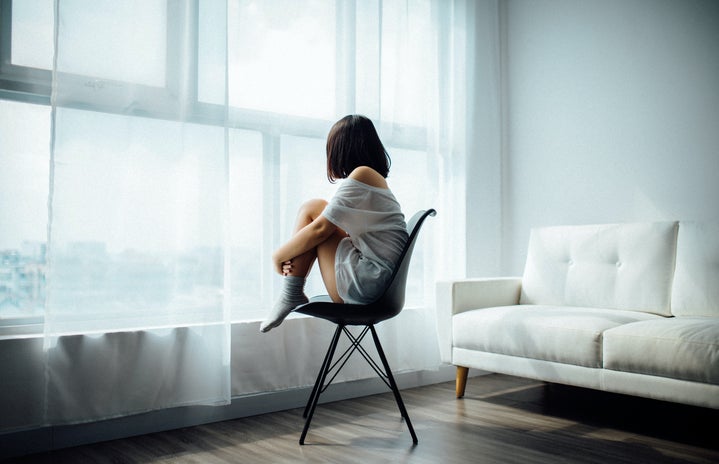This article contains a discussion of depression and topics relating to it that may be triggering to some readers. Reader discretion is advised.
For many, thinking about depression conjures a specific image: struggling to get out of bed, isolation, constant crying, and all the other things that we learn are “telltale signs” that someone is struggling. However, through my own struggles, I’ve learned that depression is not and will never be “one-size-fits-all.”
I first began to struggle with depression in my junior year of high school. I wasn’t motivated to go to school, extracurriculars and everything I usually enjoyed. I started to show the “telltale signs,” constantly crying and isolating myself. I started attending counseling sessions, visiting a psychiatrist and eventually receiving treatment with antidepressants. For a long time afterward, I believed that depression, for me, would always manifest itself the same way, with all of those same signs. I started to feel better, and as I worked on myself, I believed that I had “moved past my depression.” For me, I thought it was just a stage of my life rather than something that could be recurring.
It may not come as a surprise that I was completely wrong in thinking that. I soon learned that my depression would come in waves in my life; sometimes, I would be doing well, and other times, not so well. I found that this was normal, and I wasn’t crazy. After these conversations, I began to think about the way depression is often portrayed in the media, with those telltale signs, and either two conclusions — getting “better” or the latter, choosing to end your life. As someone struggling in the highs and lows of their mental illness, this can be difficult to see, especially knowing that those are not the only options. Depression manifests itself in so many ways, which means that everyone copes in different ways.
Recently, I’ve fallen into patterns of depression. I lack motivation, sleep in and cry more than usual at sad TikToks. Sometimes, this kind of depression was situational, when something was stressing me out or upsetting me, but other times, there was no rhyme or reason why I felt this way. Even when I felt these symptoms occur, I don’t find myself labeling it as depression, but rather a funk, and not something permanent. While this may be true, that those feelings aren’t permanent, I’m also working on remembering that my mental illness, whether my depression or anxiety, won’t always look the same, but no matter what, there’s a way through it.
Ultimately, I wish that there was more discussion about these highs and lows to let people know that it’s completely normal to ebb and flow through changes and emotional states. Hopefully, this article has added to that discussion so that in the future, someone just like me can be comforted and feel understood.


